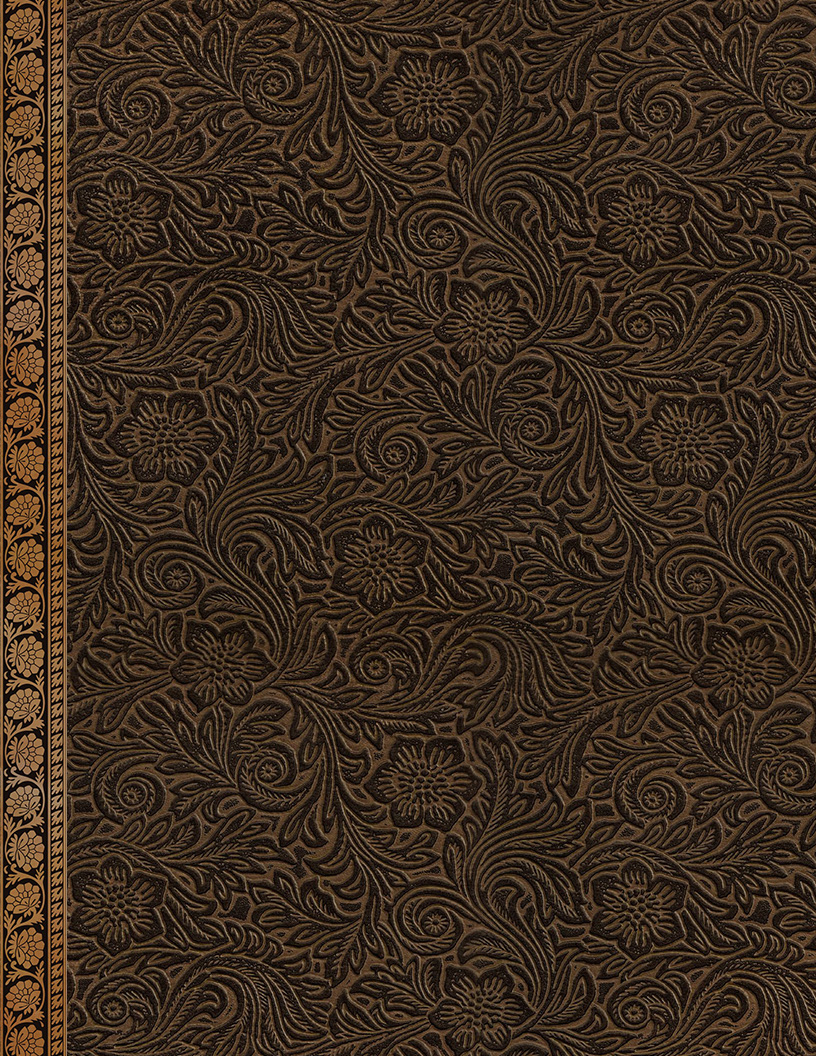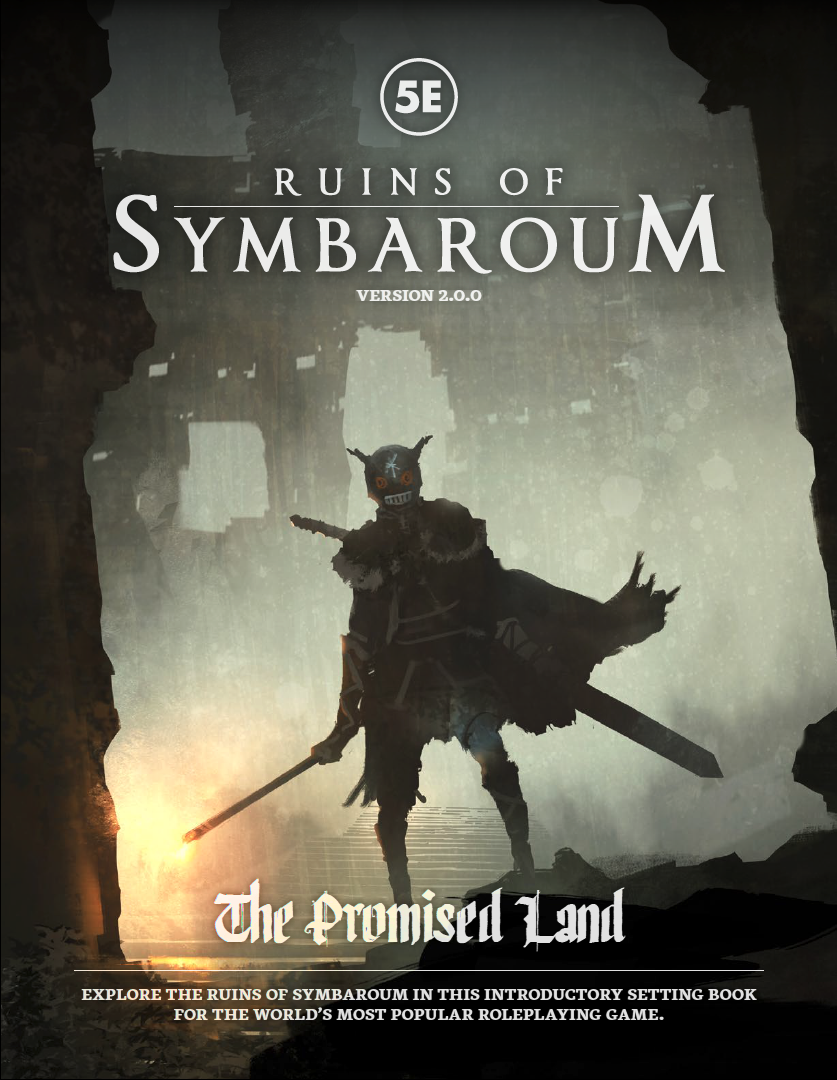

Playable Races of Symbaroum
Changeling Traits
-
Ability Score Increase. Your Charisma score increases by 2. In addition, one ability score of your choice other than Charisma increases by 1.
-
Age. Once adulthood is reached, the ageing process of changelings slows down compared to humans. In the terms of the Elven life-cycle, they can be described as forever in between spring and summer. They can live up to two or even three centuries if its life is not shortened by violence, poison or disease. Changelings long lifespan make them prone to do things at a slow pace, but this is compensated by the attitude that what is worth doing is worth doing well, which over time results in a considerable degree of expertise.
-
Size. Changelings are slightly shorter than humans at 5’3 on average. Your size is Medium and you have a D8 Hit Die. At first level you have 8 hit points plus your Constitution modifier. When you gain a level in any class, you gain an additional Hit Die and 5 (1d8) plus your Constitution modifier hit points.
-
Speed. Your base walking speed is 30 feet.
-
Darkvision. You can see in dim light within 60 feet of you as if it were bright light, and in darkness as if it were dim light. You can’t discern colour in darkness, only shades of grey.
-
Shapeshifter. The character has the capability to borrow the appearance of others for a period of time. For young changelings this ability comes naturally, and it can be hard for them not to adopt the appearance and mannerisms of people around them. Mature changelings usually develop greater control over the trait.Once per short rest, as an action, you can change your appearance and your voice. You determine the specifics of the changes, including your colouration, hair length, and sex. You can also adjust your height and weight, but not so much that your size changes. You can make yourself appear as a member of another race, though none of your game statistics change. You can’t duplicate the appearance of a creature you’ve never seen, and you must adopt a form that has the same basic arrangement of limbs that you have. Your clothing and equipment aren’t changed by this trait.You stay in the new form until you use an action to revert to your true form or until you die.
-
Changeling Instincts. You gain proficiency with two of the following skills of your choice: Deception, Insight, Intimidation, and Persuasion.
-
Languages. Changelings usually speak the human language of the family they grew up with, either Ambrian or Barbarian.
Undead Traits
-
Ability Score Increase. Undead share the same racial ability modifiers as their race before death. Your Charisma is lowered by 1.
-
Age. Undead do not age. Your body slowly decay as your corrupted soul lingers on.
-
Size. Undead have the same size of their race before death.
-
Speed. Undead have the same speed of their race before death.
-
Superior Darkvision. Undead have superior vision in dark and dim conditions. You can see in dim light within 120 feet of you as if it were bright light, and in darkness as if it were dim light. You can’t discern colour in darkness, only shades of grey.
-
Undead. Undead do not require air, food, drink, or sleep. Undead are immune to poison damage and diseases. Once per short rest, as a bonus action Undead can partially dissociate from their physical body and gain immunity to non-magical damage and resistance to magical damage for one turn. Undead do not heal naturally and are not affected by alchemical healing elixirs, but must instead eat raw meat (living or recently killed) or drink blood to heal, each point of Constitution that the creature consumes heals it by 2 Hit Points.
-
Fear Aura. Once per short rest, one hostile creature that starts its turn within 20 feet of the undead must make a DC 17 Wisdom saving throw, unless the undead is incapacitated. On a failed save, the creature is frightened until the start of its next turn. If a creature's saving throw is successful, the creature is immune to the undead's Fear Aura for the next 24 hours.
-
Languages. Undead know the same language their race knew before death
Ogres Traits
-
Ability Score Increase. Your Strength score increases by 2, and your Constitution score increases by 1.
-
Age. Once adulthood is reached, the ageing process of ogres slows down. They can live up to two or even three centuries if its life is not shortened by violence, poison or disease. Ogres long lifespan make them prone to do things at a slow pace, but this is compensated by the attitude that what is worth doing is worth doing well, which over time results in a considerable degree of expertise.
-
Size. Ogres are 7’6 feet tall on average and corded with powerful muscles, weighing up to 280 pounds. Your size is Medium and you have a D10 Hit Die. At first level you have 10 hit points plus your Constitution modifier. When you gain a level in any class, you gain an additional Hit Die and 6 (1d10) plus your Constitution modifier hit points.
-
Speed. Your base walking speed is 30 feet.
-
Powerful Build. You count as one size larger when determining your carrying capacity and the weight you can push, drag, or lift.
-
Pariahs. Ogres are poorly treated in society and have disadvantage on Charisma checks with other races. However, ogres have advantage on Charisma checks in the rare instances when interacting with one of their brethren.
-
Darkvision. You can see in dim light within 60 feet of you as if it were bright light, and in darkness as if it were dim light. You can’t discern colour in darkness, only shades of grey.
-
Languages. Ogres usually speak the local human language, either Ambrian or Barbarian. Some near Davokar speak the language of trolls or elves as well.
Mystic
As a mystic, you have the following class features:
-
Hit Dice: If you are not using your race to determine Hit Dice, your Hit Die is a d8.
-
Hit Points at 1st Level: If you do not use your race to determine hit points, you have 8 + your Constitution modifier.
-
Hit Points at Higher Levels: If you do not use your race to determine hit points, you gain 1d8 (or 5) + your Constitution modifier per mystic level after 1st.
Proficiencies
-
Armour: Light armour
-
Weapons: Simple weapons
-
Tools: None
-
Saving Throws: Intelligence, Wisdom
-
Skills: Choose three from Arcana, History, Insight, Investigation, Medicine, and Religion
Shadow
As a reminder, your Corruption Threshold is equal to twice your proficiency bonus plus your spellcasting modifier, to a minimum of 2. See your Mystic Approach for more information.
Equipment
You start with the following equipment, in addition to the equipment granted by your background:
-
(a) a shortbow and quiver of 20 arrows or (b) a quarterstaff
-
(a) a scholar’s pack, or (b) an explorer’s pack
-
Leather armor, two daggers, and a component pouch
-
1 + 4d6 gold pieces
Spellcasting
You are a wielder of arcane powers, drawing on unseen forces to bend the world to your will. However, such changes are not without a price and mystics face a constant threat of gaining Corruption that can ruin their body and soul. For more about Corruption, see page 18-21.
Cantrips
At 1st level, you know six cantrips of your choice from the spell list for your mystic approach. When you cast most cantrips (see Favored Spells, below) you gain 1 point of temporary Corruption.
Levelled Spells
You know two 1st level spells from the spell list from your mystic approach. When you gain a level in mystic you learn another spell, which can be any spell on your list, up to your current maximum spellcasting level as shown on the Mystic table.
Casting a Spell
To cast a spell you take an appropriate action and gain temporary Corruption. A cantrip causes 1 point of temporary Corruption while a leveled spell causes 1d4 plus the spell’s level points of Corruption.
Example: Mira’s ogre mystic Grumpa casts message, a cantrip, and gains 1 point of temporary Corruption. Later, Grumpa uses knock, a 2nd-level spell. She now adds 1d4+2 points of temporary Corruption.
Some spells allow you to cast them using a higher level spell slot. You can cast up to your maximum spellcasting level as long as you pay the additional Corruption cost.
Spellcasting Ability
Your mystic approach determines your spellcasting ability, which affects your Corruption Threshold, spell save DC and your spell attack modifier:
- CORRUPTION THRESHOLD = (your proficiency bonus + your spellcasting ability modifier) x 2
- SPELL SAVE DC = 8 + your proficiency bonus + your spellcasting ability modifier
- SPELL ATTACK MODIFIER = your proficiency bonus + your spellcasting ability modifier
Favored Spells
There are certain spells that a mystic has studied extensively, to the point that they can mitigate the corrupting inf luence of the familiar magic. At 1st level, you can select 2 cantrips and 1 leveled spell. When you cast a favored cantrip you gain no Corruption, and when you cast a leveled favored spell you gain Corruption equal to 1 plus the level of the spell. When you gain a mystic level you can make more spells favored, as shown on the Mystic table under Favored Spells, the first number is the current amount of favored cantrips and the second number is for leveled spells.
| Level | Proficiency Bonus | Features | Favored Spells | Max Casting Level |
|---|---|---|---|---|
| 1st | +2 | Spellcasting, Mystic Approach | 2/1 | 1 |
| 2nd | +2 | Ritual Casting | 3/1 | 1 |
| 3rd | +2 | Mystic Approach | 4/2 | 2 |
| 4th | +2 | Ability Score Improvement or Feat | 5/2 | 2 |
| 5th | +3 | Ritual Casting | 6/3 | 3 |
| 6th | +3 | Mystic Approach | 6/3 | 3 |
Certain spells are on the edge of dark sorcery and cannot become favored. These spells are marked with an asterisk (*) in the spell lists for each mystic approach.
Approach
At first level you also choose your mystic approach, which determines how you learned your arcane knowledge and how you understand the nature of the world. You might be a sorcerer, seeking shortcuts to power despite their danger; a theurg that wields the power of the Sun God, or a wizard that learned an orderly and philosophical approach to magic. Or you might be self-taught, without boundaries but a danger to yourself and others.
This product contains a preview of the theurg and wizard approaches. Future products will introduce additional approaches.
Your approach gives you benefits at 1st, 3rd, and 6th levels.
Ritual Casting
At 2nd level, you may choose a spell that you do not already know that is on your mystic approach spell list, has the ritual tag, and does not exceed your current maximum spell level. You gain permanent Corruption (see page 18) equal to half the spell level, rounded up. If the ritual is a cantrip, you gain no permanent Corruption. You can only cast the chosen spell as a ritual — the ritual version of a spell takes 10 minutes longer to cast than normal and can only be cast at its base level. You gain no Corruption from casting one of these spells.
You can chose to learn another spell as a ritual at 5th level.
Ability Improvement or Feat
When you reach 4th level, you can increase one ability score of your choice by 2, or you can increase two ability scores of your choice by 1. As normal, you can’t increase an ability score above 20 using this feature. Instead of improving your ability scores you can instead choose to gain a feat.
